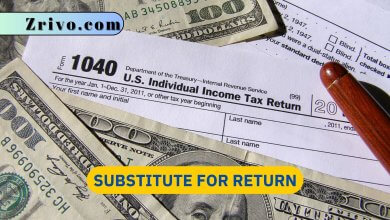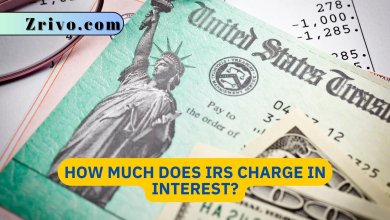Employer-Sponsored Plans
This article will explore the different types of employer-sponsored plans, their features, benefits, and potential risks and drawbacks. We will also discuss common questions and concerns about these plans to help you make informed decisions about your benefits options.

Contents
- What are Employer-sponsored Retirement Plan Types?
- What are Employer-sponsored Savings Plans?
- What are Employer-sponsored Savings Plan Risks?
- Advantages and Disadvantages
- FAQs:
- Are employer-sponsored plans required by law?
- Can employees opt out of employer-sponsored plans?
- Can employers change the benefits offered in an employer-sponsored plan?
- Can part-time employees participate in employer-sponsored plans?
- What happens to an employer-sponsored plan if an employee leaves the company?
- Are employer-sponsored plans the only way to obtain benefits?
Employer-sponsored plans are an important aspect of employee benefits and are typically offered by employers to help attract and retain talented employees. These plans come in various types, such as retirement and savings plans, and provide employees with valuable benefits such as health insurance coverage, retirement savings opportunities, and other perks. These plans can also offer tax advantages to both employers and employees, making them a popular choice for many organizations. While there are advantages to employer-sponsored plans, there are also potential disadvantages and risks that employers and employees need to be aware of.
What are Employer-sponsored Retirement Plan Types?
There are several types of employer-sponsored retirement plans, including 401(k) plans, 403(b) plans, Simplified Employee Pension (SEP) plans, and Simple IRA plans. 401(k) plans are the most common type of employer-sponsored retirement plan and allow employees to contribute a portion of their pre-tax income to a retirement account. 403(b) plans are similar to 401(k) plans but are available to employees of nonprofit organizations, schools, and certain other employers. SEP plans and Simple IRA plans are designed for small businesses and allow employers to make contributions to a retirement account on behalf of their employees.
What are Employer-sponsored Savings Plans?
Employer-sponsored savings plans are benefits programs that allow employees to save money for various goals, such as buying a house, paying for education, or building an emergency fund. These plans can include flexible spending accounts (FSAs), health savings accounts (HSAs), and other savings plans. FSAs allow employees to set aside pre-tax dollars to pay for qualified medical expenses, while HSAs allow employees to save pre-tax dollars for medical expenses in conjunction with a high-deductible health plan.

What are Employer-sponsored Savings Plan Risks?
While employer-sponsored savings plans can be a great way to save money for various goals, they do come with some risks. For example, FSAs typically have a “use it or lose it” rule, which means that any funds left in the account at the end of the year are forfeited. In addition, some savings plans may have fees or restrictions limiting the amount of money employees can save or withdraw from the account.
Advantages and Disadvantages
Employer-sponsored plans offer several advantages for both employers and employees. For employers, these plans can help attract and retain top talent and provide tax benefits for offering benefits programs. For employees, employer-sponsored plans provide access to benefits they may not be able to afford or obtain on their own and tax benefits for contributing to certain types of plans, such as retirement plans.
While employer-sponsored plans can be beneficial, they do come with some disadvantages. For example, some plans may have restrictions or fees limiting the amount of money employees can save or withdraw from the account. In addition, some plans may require employees to stay with the company for a certain time before fully vesting their retirement benefits. Finally, some plans may not offer as much flexibility or choice as individual plans, which may not meet the specific needs of every employee.

FAQs:
Are employer-sponsored plans required by law?
No, employer-sponsored plans are not required by law, but some employers choose to offer them as a way to attract and retain employees.
Can employees opt out of employer-sponsored plans?
In most cases, employees can opt out of employer-sponsored plans if they choose not to participate. However, the employer may require certain benefits, such as health insurance, and cannot be opted out of.
Can employers change the benefits offered in an employer-sponsored plan?
Yes, employers can change the benefits offered in an employer-sponsored plan.
Can part-time employees participate in employer-sponsored plans?
It depends on the specific plan and employer. Some plans may require employees to work a certain number of hours per week or meet other eligibility criteria before they can participate. However, some employers may offer benefits to part-time employees as well.
What happens to an employer-sponsored plan if an employee leaves the company?
The specifics of what happens to an employer-sponsored plan when an employee leaves the company depend on the type of plan. For example, in a retirement plan, an employee may be able to roll their account over into a new retirement plan or IRA. In a health insurance plan, an employee may be able to continue their coverage under COBRA or another continuation of coverage option.
Are employer-sponsored plans the only way to obtain benefits?
No, employer-sponsored plans are not the only way to obtain benefits. Individuals can also obtain benefits through individual plans, such as health insurance plans or retirement accounts (IRAs). However, individual plans may not offer the same benefits or tax advantages as employer-sponsored plans.





